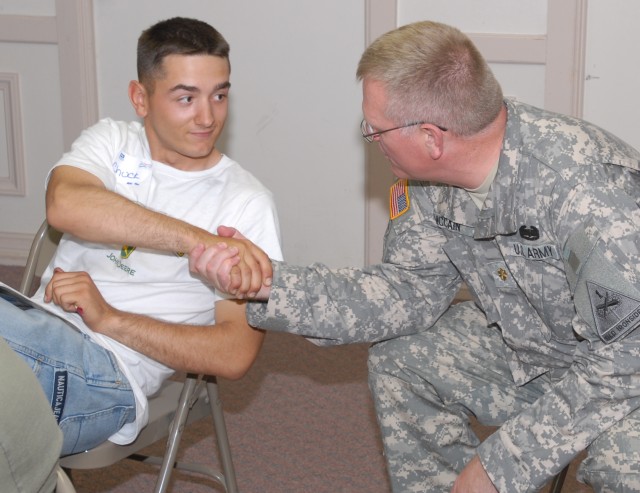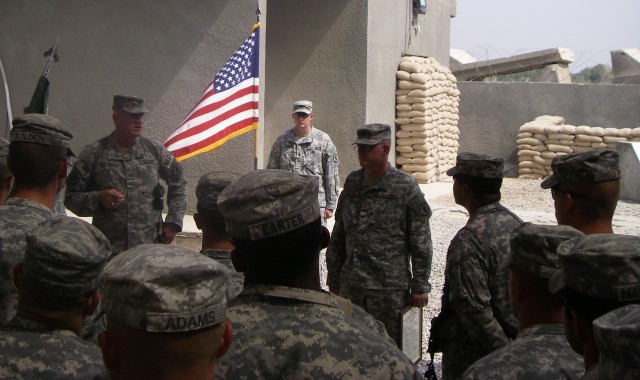FORT BLISS, Texas-- The overall fitness and mission capability of a Soldier cannot be measured without taking into account physical, mental and spiritual health. For more than two centuries, the Army chaplaincy has been tasked with providing religious services to Soldiers during times of peace and war. In continuing with that responsibility, the chaplaincy has expanded to include more than 130 different religious affiliations.
However, the evolution of the chaplaincy is not limited to the inclusion of numerous faiths but in the main role of the chaplain. In many ways, the chaplain has become the ultimate Soldier advocate.
"I think the chaplaincy has become more relevant with multiple deployments," said Sgt. Randy L. Pass, 1st Brigade Combat Team, 1st Armored Division chaplain's assistant.
Accomplishment of the Army mission abroad presents a set of unique challenges for the Soldiers and their families. Pass said many Army marriages end in divorce. He said to counteract these trends, which are typically caused by deployments and financial problems, the chaplaincy makes available financial training, marital counseling and seminars on child rearing.
The chaplaincy is dedicated to remaining proactive in these areas because of the causal links to suicide.
"Lieutenant General (Rick) Lynch, Commander of the III Corps, in a recent conference, lectured that over half of the Army suicides were linked to Soldiers with financial difficulties," said Pass.
For some Soldiers, the chaplain removes the stigma of seeking help for personal issues because of the guaranteed confidentiality.
"A conversation with the chaplain allows Soldiers to vent to someone who cares about their issues and is going to either help fix their problem or at least put a dent in it," said Chaplain (Maj.) Henry D. McCain, 1st BCT, 1st AD chaplain.
McCain has more than 27 years of military experience, splitting his time between the Army and the Air Force. He initially enlisted at 17, following in the footsteps of his father and intended to be a field artillery officer. While completing Officer Candidate School in 1994, he was severely injured on a land navigation course. A message, he said, that God had other ideas about the best route for him to help others.
In 2004, McCain deployed to Baghdad, Iraq, with a military police battalion and quickly made a reputation for himself by accompanying Soldiers on patrols. Putting himself in similar situations, even though he did not carry a weapon, allowed the chaplain to better counsel Soldiers and helped build rapport.
"I really wanted to know what my Soldiers were going through, "McCain said.
McCain also performed memorials and hospital tours, visiting wounded Soldiers every two or three days. His time spent deployed, he said, was a ministry of presence: Being present at the right time, at the right place to help Soldiers.
"My biggest priority is that the chaplaincy continues to be an asset to the Army," McCain said.
In order for that to happen, he said, the chaplaincy must continue to take care of highly stressed soldiers, get involved with the families and stay educated in multiple facets and resources to help the greatest variety of people.
There are more than 2,700 Army chaplains, many of whom are currently deployed or mobilized in support of Army operations. McCain is slated for his third deployment later this year.




Social Sharing